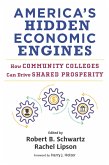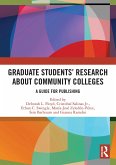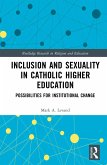Early Colleges as a Model for Schooling advocates for early college high schools as an effective means of reducing academic, cultural, and financial obstacles to postsecondary education. This perceptive work evaluates the impacts of early colleges-hybrids that blend elements of secondary and postsecondary education. Authors Julie A. Edmunds, Fatih Unlu, Elizabeth J. Glennie, and Nina Arshavsky craft their narrative around the findings of one of the most ambitious studies to date on early college high schools, a fifteen-year longitudinal study involving more than four thousand students across nineteen secondary schools that have adopted the model. The authors demonstrate how the positive outcomes of the early college experience can help tip the balance toward successful postsecondary educational experiences, especially for historically underserved students such as low-income students, minoritized students, and first-generation college students. They argue persuasively that wider adoption of this educational model in high schools has great potential to improve overall access to higher education. "Edmunds and her coauthors have built a compelling case for why and how early colleges create a vision for transforming the American high school and its relationship to higher education. It is firmly grounded in years of rigorous research nationally and brought to life showing how students' experiences are positively impacted by practices and policies that weld and meld our fractured secondary and postsecondary systems." -Joel Vargas, vice president, Jobs for the Future Julie A. Edmunds is program director for Secondary School Reform at the SERVE Center at the University of North Carolina at Greensboro. Fatih Unlu is a senior economist and the director of the Labor, Workforce Development, and Postsecondary Education program at the RAND Corporation. Elizabeth J. Glennie is a senior research analyst in RTI International's Education Workforce Development division. Nina Arshavsky is a senior research specialist at the SERVE Center at the University of North Carolina at Greensboro.
Dieser Download kann aus rechtlichen Gründen nur mit Rechnungsadresse in A, D ausgeliefert werden.









